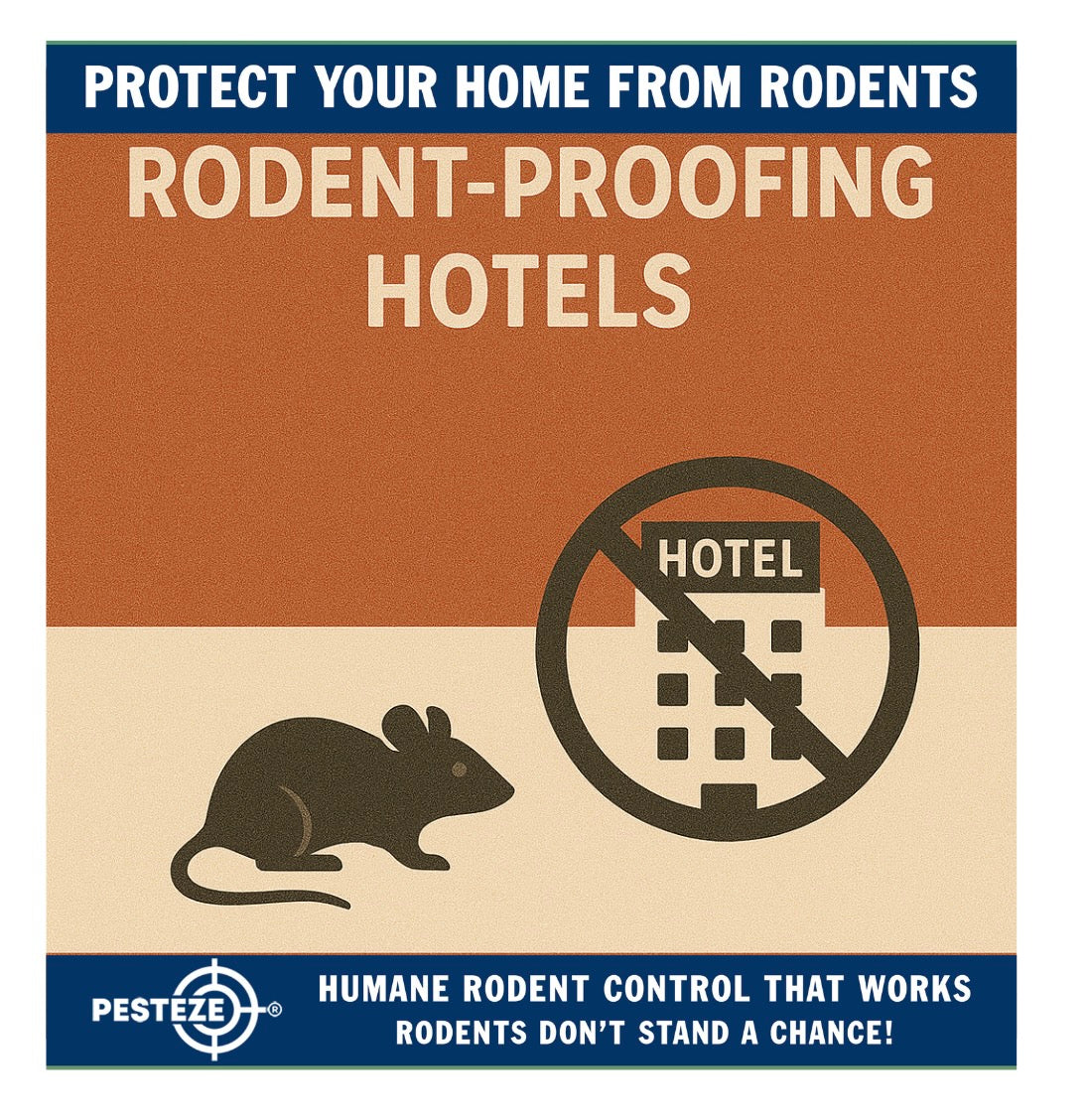RODENT-PROOFING HOTELS: KEEPING GUESTS SAFE AND COMFORTABLE

RODENT-PROOFING HOTELS: KEEPING GUESTS SAFE AND COMFORTABLE
SUMMARY
Rodent infestations in hotels can harm your reputation, cause health risks, and disrupt guest comfort. Learn the best strategies for rodent-proofing your hotel to ensure a safe, hygienic environment for your guests and protect your business from costly damages.
FEATURES
-
Seal Entry Points: Inspect and seal all potential entry points, including doors, windows, vents, and cracks in walls.
-
Regular Inspections: Schedule routine inspections to check for signs of rodents and potential entry points.
-
Proper Waste Management: Implement a waste disposal system to avoid attracting rodents to the property.
-
Guest Room Monitoring: Equip housekeeping staff with the knowledge to spot rodent signs in guest rooms.
-
Training Staff: Train employees to recognize signs of rodent activity and report it immediately.
- Effective Pest Control Plan: Partner with a professional pest control service to implement long-term rodent management strategies.
DESCRIPTION
Rodent-proofing your hotel is not just about maintaining hygiene; it’s about protecting your guests, your reputation, and your bottom line. Rodents pose significant health risks, cause property damage, and can quickly lead to negative reviews, which can severely impact your business. Here’s how to ensure your hotel remains a safe and comfortable space for guests while preventing rodent infestations.
The first step in rodent-proofing your hotel is to seal potential entry points. Rodents can squeeze through the smallest cracks, so thoroughly inspecting the exterior and interior of your building is crucial. Check doors, windows, vents, and cracks in walls for gaps that could allow rodents inside. Seal any openings with appropriate materials such as caulking or steel wool to prevent easy access.
Regular inspections are essential to catching any signs of rodent activity early. Schedule routine inspections, especially in areas such as kitchens, storage rooms, basements, and attics, which are more prone to infestations. Keeping a close eye on these areas ensures that you can address potential issues before they escalate.
Proper waste management is another critical factor in rodent-proofing your hotel. Ensure that all food waste, trash, and other potential food sources are securely contained in sealed bins. Keep garbage areas clean and take out the trash regularly to minimize the attraction for rodents. Rodents are always on the lookout for easy food sources, so minimizing waste is key to discouraging their presence.
In addition to waste management, it’s important to train housekeeping and maintenance staff to be vigilant about spotting signs of rodent activity in guest rooms. They should be trained to check for droppings, gnaw marks, and unusual odors during their cleaning routines. Staff should also be instructed to report any suspicious signs of rodents immediately to management.
Training staff to recognize and report rodent problems is crucial. Ensure that all employees are aware of the proper procedures for reporting rodent sightings or signs of activity. A quick response can help prevent a small issue from turning into a bigger problem, so make sure there is a clear line of communication for pest-related concerns.
Finally, working with a professional pest control service is essential for long-term success. An experienced pest control team can help you create and implement a comprehensive rodent management plan that includes regular inspections, monitoring, and treatments to ensure your hotel remains pest-free year-round. Professional pest control services will also be able to recommend the most effective rodent-proofing measures and provide customized solutions to suit your hotel’s unique needs.
By following these steps, your hotel can provide a comfortable, safe, and pest-free environment for guests, ensuring a positive experience and protecting your business from the negative effects of a rodent infestation.
- Nikita Gulrajani


Comments 0